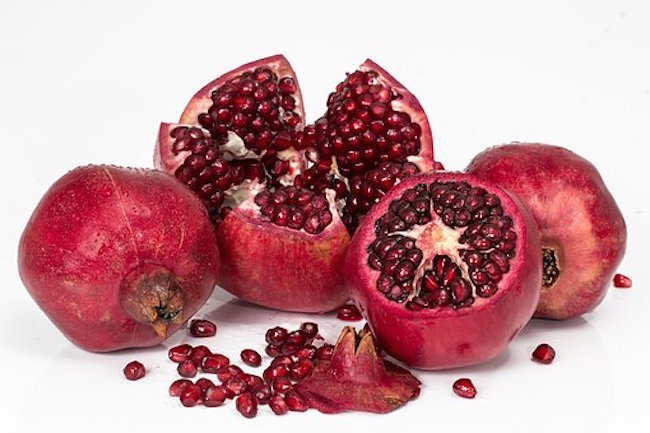Top pomegranate health benefits by Dr. Joseph Mercola for Mercola
Pomegranates have been enjoyed for thousands of years and are a symbol of hope and abundance in many cultures. In North America, they’re often overshadowed by more common fruits like apples and oranges, but once you learn how to eat them, pomegranates can add valuable nutrition, including powerful antioxidants, to your diet.
Pomegranates contain potent antioxidants
Pomegranate’s benefits are primarily attributed to its antioxidant content. Antioxidants are nature’s way of providing your cells with adequate defenses against attack by reactive oxygen species (ROS). With sufficient levels, your body will be able to resist cellular damage and aging caused by everyday exposure to pollutants.
The fruit contains three types of antioxidant polyphenols, including tannins, anthocyanins and ellagic acid, in significant amounts. Ellagitannin compounds such as punicalagins and punicalins account for about half of the pomegranate’s antioxidant ability.1
It’s also an excellent source of vitamin C, another potent antioxidant, with one whole pomegranate providing 28.8 milligrams (mg) of vitamin C.2 According to the National Institutes of Health,3 adult men need approximately 90 mg and adult women 75 mg of vitamin C per day to maintain a satisfactory vitamin C status, with smokers needing 35 mg more than nonsmokers.
According to a 2008 study,4 which compared the potency of 10 different polyphenol-rich beverages, pomegranate juice scored top billing as the healthiest. Overall, its antioxidant potency was found to be “at least 20% greater” than any of the other beverages.
Pomegranates activate mitophagy
Autophagy means “self-eating” and refers to your body’s process of eliminating damaged cells and cellular components by digesting them. It’s an essential cleaning out process that encourages the proliferation of new, healthy cells, and is a foundational aspect of cellular rejuvenation and longevity.
Similarly, mitophagy refers to “a cytoprotective process that limits both the production of ROS and the release of toxic intramitochondrial proteins.”5 In other words, mitophagy is the process of cleaning out your mitochondria, allowing them to function at their best, which is crucial for normal cellular functioning and homeostasis,6 and thus for health and longevity.
Urolithin A is believed to be responsible for most of the mitophagy activation, which is one of the reasons I regularly take pomegranate peel powder. The powder doesn’t have urolithin A but the ellagic acid and ellagitannins are converted to urolithin A by bacteria in your gut,7,8 specifically the Gordonibacter species.9
As explained in a recent Scientific Reports paper that investigated the effects of pomegranate extract, finding it stimulated mitophagy:10
“Mitochondrial dysfunction underscores aging and diseases. Mitophagy (mitochondria + autophagy) is a quality control pathway that preserves mitochondrial health by targeting damaged mitochondria for autophagic degradation.
Hence, molecules or compounds that can augment mitophagy are therapeutic candidates to mitigate mitochondrial-related diseases. However, mitochondrial stress remains the most effective inducer of mitophagy. Thus, identification of mitophagy-inducing regimes that are clinically relevant is favorable.”
Pomegranate’s antiaging effects revealed
Another recent study confirmed one of pomegranate’s longstanding claims to fame, namely its antiaging benefits, in a human, placebo-controlled trial. The paper,11,12 published in Nature Metabolism, found urolithin A (a gut bacteria-derived metabolite of ellagitannins in pomegranate) can help slow the aging process — again by improving mitochondrial function. As reported by Medicalxpress:13




